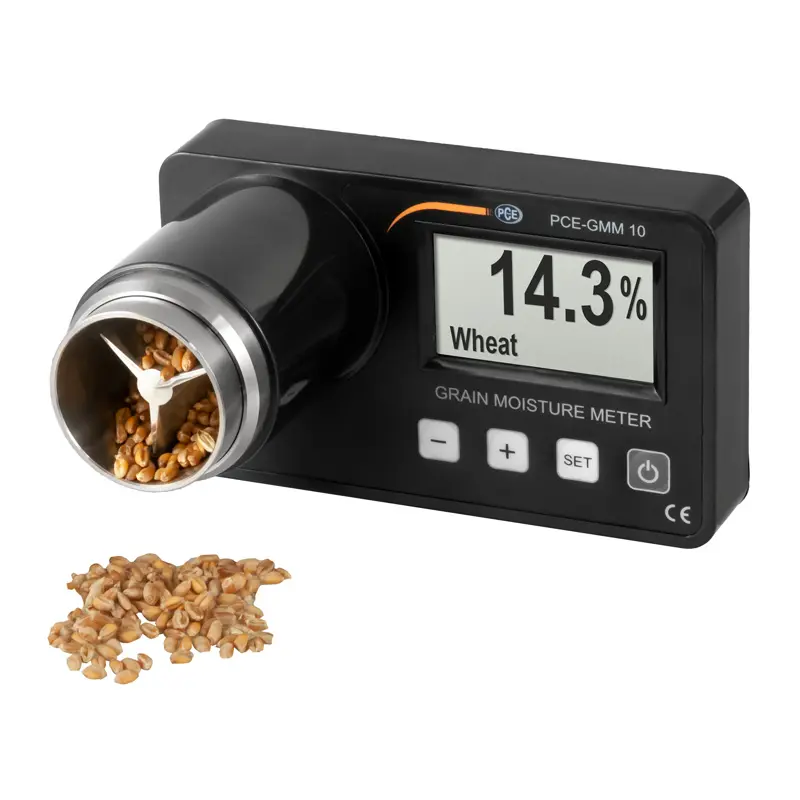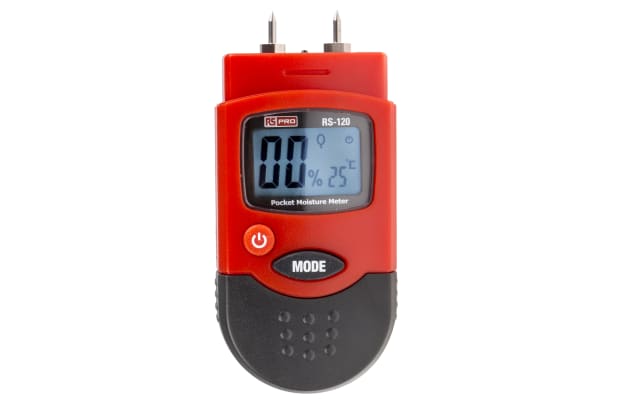The Ultimate Overview to Moisture Meters: A Comprehensive Summary and How They Can Conserve You Money
In the world of building upkeep, building and construction, and different industries, the relevance of precisely determining wetness levels can not be overstated. Moisture meters act as essential tools in detecting and keeping an eye on moisture material in materials, aiding in preventing costly damages and making sure the quality of items. Comprehending the nuances of various sorts of moisture meters, their applications, and the potential cost-saving advantages they use can be a game-changer for experts and businesses alike. Discovering exactly how these tools can not just improve procedures however likewise add to economic savings is a journey worth beginning on.
Kinds of Moisture Meters
One common type is the pin-type dampness meter, which gauges the electrical resistance in between two pins put right into a product. Pinless dampness meters, on the various other hand, use electro-magnetic sensor plates to scan a larger location without triggering damage to the product's surface.
Furthermore, there are also specialty moisture meters created for particular materials like hay, soil, or grain. These meters give accurate wetness analyses tailored to the distinct properties of the material being tested. Infrared dampness meters gauge the thermal residential properties of a product to identify its dampness material non-invasively, making them beneficial for applications where pin or pinless meters might not be appropriate. Understanding the different types of wetness meters available can help sectors pick one of the most proper tool for their particular dampness dimension requirements.

Advantages of Making Use Of Moisture Meters

Additionally, making use of wetness meters can bring about raised energy efficiency. By identifying locations with high dampness levels, such as leaks or poor insulation, adjustments can be made to enhance power preservation and decrease energy expenses. In farming settings, dampness meters play an important role in maximizing plant returns by enabling farmers to check soil wetness degrees and make educated watering choices. Generally, the benefits of utilizing moisture meters cover across different sectors, giving cost-effective options and advertising much better quality control methods.
Exactly How to Select the Right Moisture Meter
Selecting the proper dampness meter includes considering essential elements such as product compatibility, measurement array, and calibration accuracy. When selecting a wetness meter, it's necessary to make certain that the meter is ideal for the details material you will be testing. Various materials have varying electric residential or commercial properties that can impact dampness readings, so choosing a meter created for your material is critical for exact outcomes. Additionally, think about the measurement array of the dampness meter. Ensure that the meter can spot moisture levels within the variety required for your applications. Calibration accuracy is one read this more crucial aspect to bear in mind (Moisture Meter). Choose a wetness meter with trustworthy calibration to make sure specific and regular readings. Some meters might require regular calibration modifications, so comprehending the calibration procedure is necessary. By very carefully reviewing these aspects, you can choose a moisture meter that satisfies your needs and offers precise wetness measurements for your jobs.
Proper Techniques for Moisture Meter Usage
To guarantee accurate moisture readings and make best use of the performance of a wetness meter, employing appropriate techniques is essential. When utilizing a pin-type dampness meter, insert the pins or probes right into the product being examined till they make complete contact. Make sure the pins are perpendicular to the surface to obtain the most precise analysis. For pinless dampness meters, hold the device level against the product and relocate gradually to cover the entire area for an ordinary analysis. It's important to adjust the wetness meter according to the product being checked to boost precision. Take several readings across the surface area and ordinary them out for an extra reliable outcome. In addition, make certain that the material being checked is accustomed to the environment to avoid manipulated analyses. Regular maintenance of the wetness meter, such as cleaning the pins or sensing unit, is also vital to guarantee regular and precise analyses. By adhering to these appropriate techniques, customers can rely on their moisture meter to give trustworthy moisture degrees, assisting in protecting against expensive damage or making certain high quality in numerous applications.

Expense Cost Savings Via Moisture Meter Applications
Exactly how can the strategic usage of moisture meters lead to considerable cost try these out savings throughout various industries? In the farming market, moisture meters help in identifying the optimum time for collecting plants, protecting against excess or over-drying moisture that can influence the final product's quality.

Moreover, in the food handling market, moisture meters are important for checking product quality and making certain conformity with safety and security guidelines. By precisely measuring moisture content in foodstuff, manufacturers can stop putridity, maintain freshness, and minimize waste, resulting in significant price savings. On the whole, the calculated application of wetness meters is a useful investment that can result in considerable price reductions and improved effectiveness across numerous industries.
Conclusion
To conclude, moisture meters are useful tools for discovering and gauging moisture levels in numerous materials. By making use of the ideal wetness meter and complying with appropriate techniques, customers can successfully avoid pricey problems brought imp source on by excess wetness. Spending in a high quality wetness meter can cause significant cost financial savings over time by identifying possible concerns early on and making it possible for timely remediation. Eventually, moisture meters are crucial tools for preserving the stability and long life of frameworks and products.
Moisture meters serve as important devices in spotting and keeping track of moisture content in materials, assisting in stopping costly damages and guaranteeing the top quality of products. Infrared wetness meters measure the thermal properties of a product to establish its wetness material non-invasively, making them useful for applications where pin or pinless meters may not be ideal.Wetness meters supply important benefits in accurately keeping an eye on and assessing dampness levels in varied products and environments. In farming setups, wetness meters play a critical duty in maximizing plant returns by allowing farmers to keep track of dirt wetness degrees and make educated watering choices.In conclusion, moisture meters are useful tools for gauging and spotting wetness degrees in numerous materials.